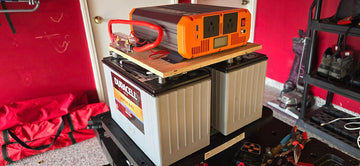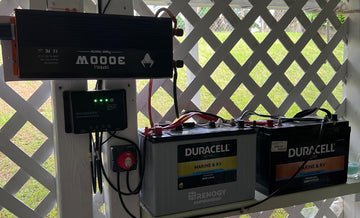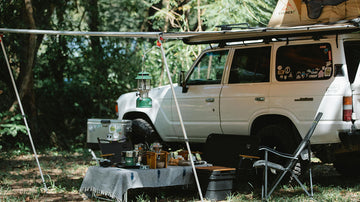Lithium batteries have become an indispensable part of modern life and are widely used in smartphones, laptops and various portable devices. However, despite the convenience they bring to our lives, improper storage and handling can lead to safety hazards. In this article, we will discuss the safety risks of lithium batteries and provide a detailed guide to safe storage of lithium batteries.
Table of contents:
Safety Risks of Lithium Batteries
Lithium batteries are composed of a positive electrode, a negative electrode, an electrolyte and a diaphragm, and generate electricity through a chemical reaction. They have high energy density, meaning that lithium batteries can store more electrical energy in the same volume or weight. However, lithium batteries also have certain safety risks. Lithium batteries contain a flammable electrolyte and highly active lithium metal inside, which may go out of control thermally under certain conditions (e.g., overcharging, over-discharging, short-circuiting, high temperature, etc.), leading to expansion, leakage, or even explosion of the battery. In addition, lithium batteries may also gradually lose power due to self-discharge during storage, and long-term unused batteries may pose a safety hazard due to uneven internal chemical reactions. If the necessary safety measures are not taken, the risk of lithium batteries is even more significant. Therefore, it is particularly important to understand the storage requirements of lithium batteries.
Key Factors for Safe Storage of Lithium Batteries
The key factors for safe storage of lithium batteries involve a number of aspects to ensure that the batteries are neither damaged nor pose a security threat during storage. These key factors are detailed below:
- Temperature control: An appropriate temperature range is paramount to ensure the safe storage of lithium batteries. Generally speaking, the optimal storage temperature is between 15°C and 25°C. Avoid extreme high or low temperature environments. High temperatures will accelerate the internal chemical reaction of the battery and increase the risk of thermal runaway; while low temperatures, although relatively safe, will affect battery performance in long-term low temperature storage.
- Humidity Management: It is critical to keep the storage environment dry. High humidity may lead to corrosion of the battery surface and internal circuits, which not only affects battery performance, but may also trigger short circuits and other safety hazards. Therefore, a dry, well-ventilated place should be chosen to store lithium batteries.
- Ventilation: Good ventilation helps to remove the heat and harmful gases that may be generated by the battery during storage, reducing the risk of thermal runaway. Ensure that the storage area is properly ventilated to avoid poor air circulation.
- Avoid physical damage: Lithium batteries should be stored so as to avoid physical damage such as crushing, impact or dropping. These damages may lead to internal short-circuit, electrolyte leakage and other problems, which may cause safety hazards. Therefore, appropriate packaging and containers should be used to protect the batteries and ensure that they are securely placed in the storage area.
- Avoid extreme conditions: In addition to temperature and humidity, avoid exposing lithium batteries to extreme light, electromagnetic fields or other environments that may affect battery performance and safety. For example, strong direct sunlight may increase the battery temperature, while strong magnetic fields may interfere with the electronics inside the battery.
- Battery Condition Management: When storing lithium batteries, attention should be paid to the battery's state of charge. It is generally recommended to keep the battery at a moderate charge level (e.g., 40%-60%) to avoid damage to the battery from overcharging or over-discharging. Meanwhile, batteries that have not been used for a long time should be charged regularly to maintain their performance.
- Storage location selection: Choose to store lithium batteries away from flammable and explosive materials and out of the reach of children. This helps reduce the risk of fire and protects children from potential harm.
How to store lithium batteries safely
Safe storage of lithium batteries is an important measure to safeguard their performance and extend their service life. The following are some correct storage methods:
1. Choose a suitable storage environment
- Temperature control: Ideal storage temperature should be maintained between 15°C and 25°C. Avoid extreme high or low temperatures. Avoid extreme high or low temperatures, as high temperatures may cause thermal runaway, while low temperatures may degrade battery performance.
- Humidity Management: Choose a location with moderate humidity, ideally between 30% and 70%. Ideal humidity is between 30% and 70%. Too high or too low humidity may affect the safety of the battery.
2. Ensure proper state of charge
- Charge level: Charge lithium batteries to about 40% to 60% of their capacity before storage. Such a state of charge can effectively avoid over-discharge or over-charge of the battery, and promote the extension of its life.
3. Use suitable storage containers
- Specialized storage box: Store lithium batteries in a shockproof plastic or metal box to prevent physical damage.
- Isolated storage: Ensure sufficient spacing between batteries to avoid direct contact and prevent short circuits.
4. Avoid flammable substances
- Safe storage location: Store lithium batteries away from flammable materials such as paper, wood and chemicals. This will reduce the risk of fire due to accidents.
5. Regularly check the battery status
- Observe the battery: Check the status of the battery regularly, look out for any swelling, leakage or other abnormalities, and deal with the problem promptly if found.
- Clean the storage area: Keep the storage area tidy and remove dust and debris regularly.
6. Enhance ventilation
- Good ventilation: Choose a well-ventilated place for storage and ensure air circulation to prevent heat buildup.
How to store lithium batteries in cold weather
When storing lithium batteries in cold weather, make sure they are kept in an indoor environment where the temperature is relatively stable, and avoid extreme cold temperatures such as in a car or outdoors. The optimal state of charge is between 30% and 50%, which prevents the battery from being damaged by over-discharge. In addition, insulating materials or insulated bags can be used to isolate the battery and minimize the effects of temperature changes.
It is important to check the condition of the battery regularly to ensure that there is no swelling or leakage. If any abnormality is found, it needs to be dealt with promptly. In addition, avoid charging and discharging operations at low temperatures to ensure the safety and performance of the battery. Through reasonable storage, you can effectively extend the service life of lithium batteries.
Storing Lithium Battery State of Charge
The state of charge of the battery when storing lithium batteries is a factor that needs to be carefully considered as it directly affects the safety, performance and life of the battery. Below are some suggestions on the state of charge of the battery when storing lithium batteries:
Appropriate State of Charge
- Semi-charged state: It is usually recommended to store lithium batteries in a semi-charged state, i.e., with a charge level between 40% and 60%. This charge range helps to maintain the internal stability of the battery and minimize damage caused by long periods of full or empty storage. At the same time, the half-charged state also helps to quickly restore the battery to serviceable condition when needed.
- Avoiding Extremes: Storing lithium batteries for extended periods of time in either a fully charged or empty state is not recommended. Storage at full charge may result in increased pressure inside the battery, increasing the risk of thermal runaway; while storage at empty charge may result in crystallization of chemicals inside the battery, impairing battery performance.
Adjustment of the state of charge
- New Batteries: Newly bought lithium batteries may have been partially charged at the factory. Before first use, they can be charged or discharged to the appropriate charge range according to individual needs.
- Long-term storage: For lithium batteries that need to be stored for a long period of time, it is recommended that they be charged to the appropriate charge range before storage, and that they be inspected and recharged at regular intervals (e.g., every 3 to 6 months) in order to maintain the battery's activity.
Physical Protection and Packaging for Storing Lithium Batteries
When storing lithium batteries, physical protection and packaging is essential to prevent accidental damage and ensure safety.
Physical Protection
- Shockproof and drop-proof: The internal structure of lithium batteries is delicate and sensitive to vibration and impact. Therefore, during storage and transportation, anti-shock materials (such as foam, bubble wrap, etc.) should be used to wrap the battery to reduce the damage caused by external impacts.
- Anti-extrusion: Avoid placing heavy objects directly on the lithium battery to prevent the battery from deformation or damage due to excessive pressure. At the same time, when storing multiple batteries, make sure there is enough space between them to avoid squeezing each other.
- Anti-short-circuit: The positive and negative terminals of lithium batteries should be kept at a certain distance from each other and isolated using insulating materials (such as plastic, rubber, etc.) to prevent short-circuiting. When storing, direct contact of metal objects with the battery should be avoided to reduce the risk of static electricity and short circuit.
Packaging Requirements
- Specialized Packaging: Use packaging containers designed for lithium batteries, which are usually fireproof, explosion-proof, leak-proof, etc., and can effectively protect the battery during storage and transportation.
- Sealing: The packaging containers should have good sealing to prevent water, dust and other impurities from entering into the interior of the container and causing damage to the battery. For batteries that need to be stored for a long time, desiccant can be placed inside the package to absorb possible moisture.
- Clear labeling: Clearly label the package with information such as the type, capacity, voltage and weight of the battery, as well as precautions and warning signs for storage and transportation. This helps to quickly identify and dispose of the batteries when needed, reducing the occurrence of safety accidents.
FAQs
Is it safe to store lithium batteries indoors?
Lithium batteries can be safely stored indoors, but some safety measures must be followed. Ensure that the storage environment is dry, cool, and protected from direct sunlight and high temperatures. Also, avoid placing the battery near flammable materials to reduce the risk of fire. 3.
Can lithium batteries be stacked?
It is not recommended to stack lithium batteries as stacking may result in contact between batteries, which increases the risk of short circuit. It is best to store the batteries separately and ensure that there is enough space between them.
How long can lithium batteries be left unused?
Lithium batteries can be left unused for 1 to 3 years under proper storage conditions. In order to maintain the health of the battery, it is recommended to check the battery status every few months and charge it moderately (keep it at 40%-60% charge).
Do I need to isolate the terminals when storing lithium batteries?
Yes, lithium batteries should have isolated terminals when stored. You can use insulating tape to cover the positive and negative terminals of the battery to prevent short circuit and accidental contact.
How to handle old or damaged lithium batteries?
Old or damaged lithium batteries should be professionally recycled and should not be thrown away. They can be taken to specialized battery recycling locations or recycling centers to ensure that they are disposed of in accordance with local regulations.
What should I do if my lithium battery swells?
If a lithium battery is found to be swollen, it is important to stop using it immediately and isolate it safely. Do not attempt to recharge or use a swollen battery. Keep it in a fire-resistant container away from flammable materials and contact a professional for disposal.
What are the safety precautions when storing lithium batteries?
- Choose a suitable storage environment: keep it dry and cool, avoid direct sunlight and high temperature.
- Regularly check the battery status: Observe the appearance of the battery to make sure there is no expansion, leakage or corrosion.
- Use a fireproof storage box: If there are multiple batteries, consider using a fireproof box for storage.
- Keep batteries charged: Keep batteries at 40%-60% when stored.
- Avoid contact with metal objects: Ensure batteries are kept away from metal objects to prevent short circuiting.
We hope you find this guide to storing your lithium batteries safely helpful. We also offer lithium batteries for a variety of applications to power your RV, camper, or motorcycle batteries, so you can go directly to the shopping section!

















